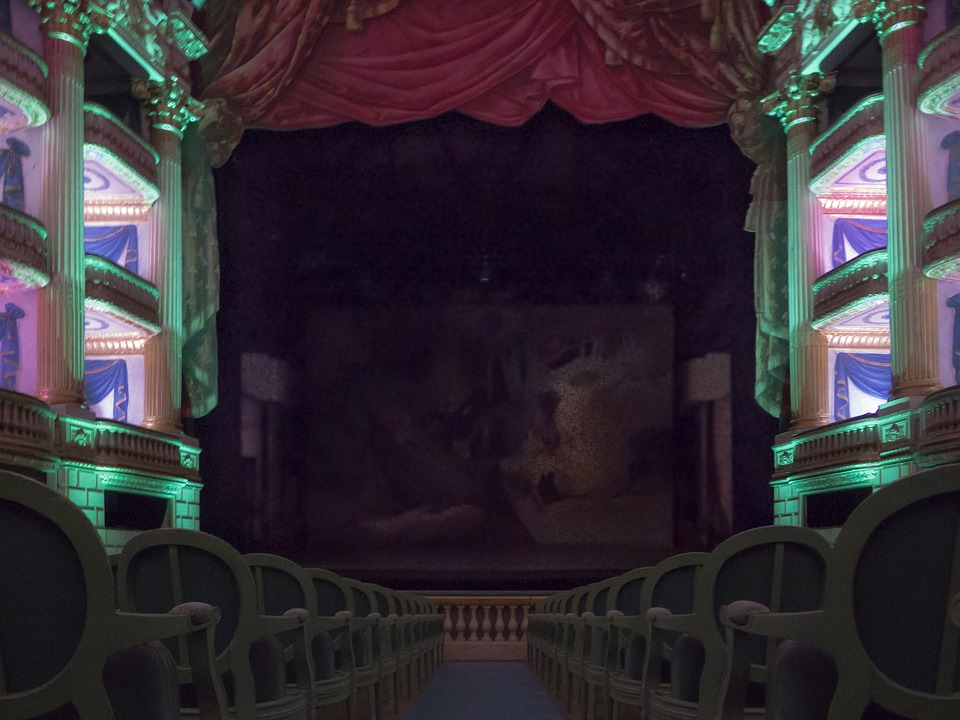The Future of Live Events
Live events have always been a staple of entertainment, from concerts and theater productions to sporting events and conferences. But with the rapid advancement of technology, the way we experience these events is changing dramatically. From virtual reality to live streaming, technology is revolutionizing the entertainment industry in ways we could have never imagined.
Virtual Reality
One of the most exciting developments in the world of live events is the rise of virtual reality (VR) technology. With VR headsets becoming more affordable and accessible, audiences can now experience live events in a whole new way. Whether it’s a front-row seat at a concert or a behind-the-scenes look at a movie set, VR technology allows viewers to immerse themselves in the action like never before.
For performers and event organizers, VR technology opens up a whole new world of possibilities. Virtual concerts can be staged without the need for a physical venue, allowing artists to reach audiences around the world. Similarly, theater productions can be filmed in 360-degree video, giving viewers a truly immersive experience. The possibilities are endless, and we can expect to see more and more live events taking advantage of VR technology in the coming years.
Live Streaming
Another major trend in the entertainment industry is the rise of live streaming. Platforms like Twitch and YouTube have made it easier than ever for performers to reach a global audience in real-time. From music concerts to comedy shows, live streaming allows audiences to experience events from the comfort of their own homes.
Live streaming also provides new opportunities for monetization, with viewers able to donate to their favorite performers or purchase virtual merchandise. For event organizers, live streaming offers the chance to reach a wider audience and generate additional revenue. This trend is only expected to grow in the future, as more and more artists and organizations embrace the power of live streaming.
Augmented Reality
While virtual reality offers a completely immersive experience, augmented reality (AR) technology adds a new layer of interactivity to live events. With AR apps and devices, audiences can see digital overlays on top of the physical world, creating unique and engaging experiences. This technology has been used in everything from art installations to museum exhibits, and we can expect to see more AR experiences at live events in the future.
For example, AR technology could be used to enhance sporting events, allowing fans to see real-time stats and replays overlaid on the field. Similarly, AR apps could be used to create interactive scavenger hunts at music festivals or gaming conventions. The possibilities are endless, and event organizers are sure to find creative ways to incorporate AR technology into their live events in the years to come.
Artificial Intelligence
Artificial intelligence (AI) is also playing a significant role in the future of live events. From personalized recommendations to real-time language translations, AI technology can enhance the overall experience for both performers and audiences. For example, AI algorithms can help event organizers better understand their audience demographics and tailor their content accordingly. Similarly, AI-powered chatbots can provide instant customer support and answer questions in real-time.
In addition, AI technology can help performers improve their craft by analyzing audience reactions and providing feedback. For example, AI algorithms can track audience engagement during a concert or comedy show, helping artists refine their performances for future events. As AI technology continues to improve, we can expect to see more and more live events taking advantage of its capabilities.
Blockchain Technology
Blockchain technology is also making waves in the entertainment industry, particularly when it comes to ticketing and security. By using blockchain technology, event organizers can create secure, tamper-proof ticketing systems that prevent scalping and fraud. This technology can also help artists and performers track ticket sales and ensure they receive fair compensation for their work.
In addition, blockchain technology can be used to create unique, limited-edition digital collectibles for live events. For example, artists could release virtual artwork or merchandise that can be bought, sold, and traded on the blockchain. This not only creates new revenue streams for performers but also offers fans a way to connect with their favorite artists in a unique and meaningful way.
In conclusion, the future of live events is being shaped by technology in ways we could have never imagined. From virtual reality to live streaming, AI to blockchain, the entertainment industry is undergoing a digital transformation that is sure to revolutionize the way we experience live events. As technology continues to evolve, we can expect to see even more innovative and immersive experiences at live events in the years to come. The possibilities are endless, and we can’t wait to see what the future holds for the world of entertainment.




